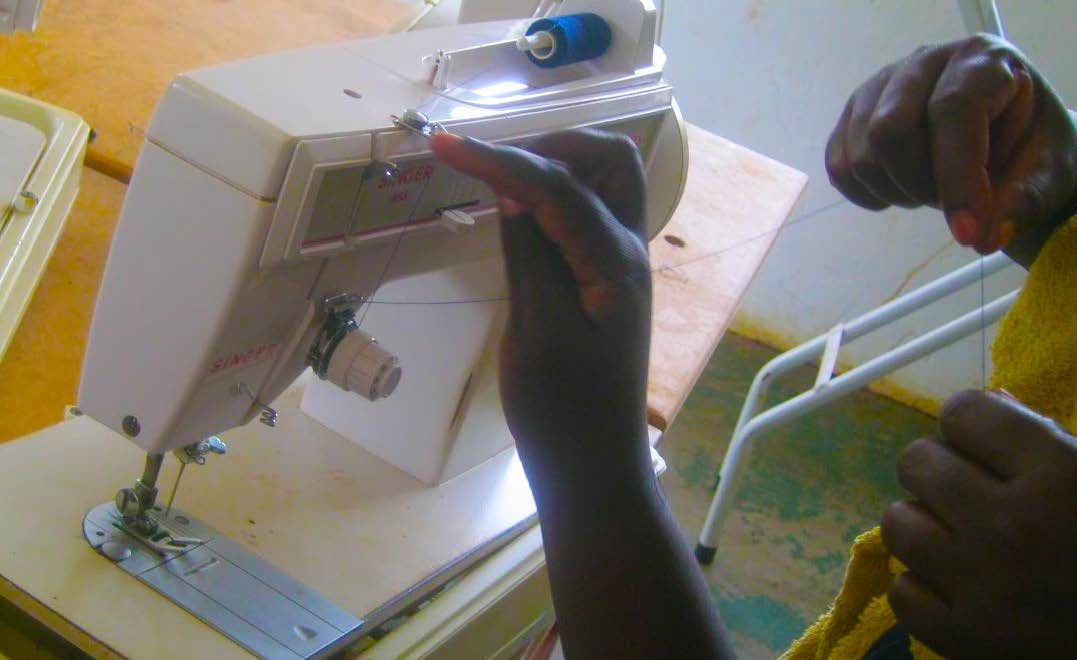Downloads
DOI:
10.31182/cubic.2018.1.002Keywords:
Zwonaka Sewing Co-operative, Co-Design, Co-Creation, Arts-Based Methods, Social InnovationAbstract
Arts and visual participatory methods can be effective tools to facilitate the experience of rural design actors involved in a co-design process that could be seen as contributions to the emerging praxis called “Design Social.” We identify the inclusion of visual processes to co-design and comanufacture Venda-fusion products with members of a South African rural-based sewing group called Zwonaka Sewing Co-operative. The co-design process involved a set of iterations that used visual modes such as Photovoice, painting, photographs, collaging and appliqué to create and market these products. Statements shared by the group members reveal the development of their personal agency, as well as confidence in product design, manufacturing, and ownership of the design process. These are significant outcomes for this particular social context, and we propose that the use of arts and visual methods enhances capacities of reciprocity, creative thinking and ownership through the co-design process.
How to Cite
Published
Issue
Section
License
Copyright (c) 2018 Khaya Mchunu, Kim Berman

This work is licensed under a Creative Commons Attribution 4.0 International License.
References
Ash, Sarah L., and Patti H. Clayton. “Generating, Deepening, and Documenting Learning: The Power of Critical Reflection in Applied Learning." In Journal of Applied Learning in Higher Education 1, no. 1 (2009). DOI: https://doi.org/10.57186/jalhe_2009_v1a2p25-48
Becker, Lily. Working in groups. Cape Town: Oxford University Press Southern Africa, 2005.
Berman, Kim. “Craft enterprise development: Surviving, responding to, and transforming a South African government poverty alleviation programme.” Journal of Arts and Communities 1 (2009). DOI: https://doi.org/10.1386/jaac.1.3.217_1
Berman, Kim. “Shifting the paradigm: The need for assessment criteria for community-engaged research in the visual arts.” South African Journal for Higher Education, no. 22 (2008): 3. DOI: https://doi.org/10.4314/sajhe.v22i3.25800
Berman, Kim, and Lara Allen. “Deepening students’ understanding of democratic citizenship through artsbased approaches to experiential service learning.” South African Review of Sociology 43 (2012): 2. DOI: https://doi.org/10.1080/21528586.2012.694245
Berman, Kim, Jane Hassinger, Debbie Rasiel and Susan Sellschop. "Women on Purpose:The Resilience and Creativity of the Founding Women of Phumani Paper." Randburg: Desklink Media, 2012.
Boyte, Harry. “Deliberative Democracy, Public Work, and Civic Agency.” In Journal of Public Deliberation, no. 10 (2014): 1. DOI: https://doi.org/10.16997/jdd.190
Cantor, Nancy and Peter Englot. “Reinventing scholareducators as citizens and public workers.” In Democracy’s Education. Public Work, Citizenship, & The Future of Colleges and Universities. Edited by Harry C. Boyte. Nashville, Tennessee: Vanderbilt University Press, 2014. DOI: https://doi.org/10.2307/j.ctv1675bg2.9
Chmela-Jones, Kate. "The ethics of Ubuntu and community participation in design." Paper presented at the 7th International Design Education Forum of Southern Africa (DEFSA), Vaal University of Technology, Johannesburg, September 2-4, 2015), accessed March 22, 2016. Online.
Davies, Rick and Jess Dart. “The ‘Most Significant Change’ (MSC) technique: A guide to its use”. United Kingdom: CARE International, 2005.
Ehn, Pelle. Work-oriented design of computer artifacts. Hillsdale: Erlbaum Associates, 1989.
Freire, Paulo. Pedagogy of the oppressed. New York: Continuum, 1970.
Gong, Miaosen, Linghao Zhang and Xian Zhang. “Design intervention for socialinnovation: Two service design workshops in Italy and China.” In Applied Mechanics and Materials, (2010): 37-38. DOI: https://doi.org/10.4028/www.scientific.net/AMM.37-38.308
Hagen, Penny and Toni Robertson. “Social Technologies: The Changing Nature of Participation in Design.” Design Issues 28 (2012): 3. DOI: https://doi.org/10.1162/DESI_a_00163
Hammond, Sue Annis. The Thin Book of Appreciative Inquiry. Bend: Thin Book Publishing, 1998.
Krensky, Beth and Seana Lowe Steffen. “Arts-based servicelearning: A state of the field.” Art Education 61, (2008): 4. DOI: https://doi.org/10.1080/00043125.2008.11652063
Levine, Peter. “The case for Civic Studies.” In Civic Studies: Approaches to the emerging field,” in Bringing Theory to Practice. Edited by Peter Levine and Karol Edward Solton. Washington, DC: Bringing Theory to Practice, 2014.
Manzini, Ezio. “Design in a changing, connected world.” In Strategic Design Research Journal 7 (2014): 2.
Manzini, Ezio. “Making things happen: Social innovation and design.” In Design Issues 30 (2013): 1. DOI: https://doi.org/10.1162/DESI_a_00248
Manzini, Ezio and Francesca Rizzo. “Small projects/large changes: Participatory design as an open participated process.” In CoDesign 7 (2011): 3-4, 199-215. doi:10.1080/15710882.2011.630472 DOI: https://doi.org/10.1080/15710882.2011.630472
Mchunu, Khaya. “The development of a new sewing cooperative for Tshulu Trust in HaMakuya, Limpopo Province through arts-based training interventions.” MTech Fine Art diss; University of Johannesburg, 2013.
Melles, Gavin, Ian de Vere and Vanja Misic. “Socially responsible design: thinking beyond the triple bottom line to socially responsive and sustainable product design.” In CoDesign 7 (2011): 3-4. DOI: https://doi.org/10.1080/15710882.2011.630473
Munyai, Keneilwe and Mugendi M’Rithaa, “Economic, environmental and social benefits of promoting sustainability through embedding traditional techniques of production in modern design.” In Craft Journal 7 (2014): 1.
Papanek, Victor. Design for the real world. New York: Van Nostrand Reinhold, 1984.
Reason, Peter. Three approaches to participative inquiry. Edited by K. Denzin & Y. S Lincoln. Thousand Oaks: Sage Publications, 1994.
Reason, Peter and Hilary Bradbury (eds.). Handbook of action research. London: Sage Publications Ltd, 2006.
Robertson, Toni and Jesper Simonsen. “Challenges and Opportunities in Contemporary Participatory Design.” In Design Issues 28 (2012a): 3. DOI: https://doi.org/10.1162/DESI_a_00157
Simonsen, Jesper and Toni Robertson, (eds.). Routledge International Handbook of Participatory Design. London: Routledge, 2012b. DOI: https://doi.org/10.4324/9780203108543
Spinuzzi, Clay. “The Methodology of Participatory Design.” In Technical Communication 52 (2005): 2.
Steen, Marc. “Tensions in human-centred design.” In CoDesign: International Journal of CoCreation in Design and the Arts 7 (2011): 1. DOI: https://doi.org/10.1080/15710882.2011.563314
Stringer, Ernest. Action research. Thousand Oaks: Sage Publications, 1999.
Thorpe, Adam and Lorraine Gamman. “Design with society: why socially responsive design is good enough.” In CoDesign 7 (2011): 3-4. DOI: https://doi.org/10.1080/15710882.2011.630477
Tshulu Trust, accessed February 11, 2017. Online.
Wang, Caroline and Mary Ann Burris. “Photovoice: concept, methodology, and use for participatory needs assessment.” In Health Education and Behavior 24 (1997): 3. DOI: https://doi.org/10.1177/109019819702400309
Winschiers-Theophilus, Heike, Nicola J. Bidwell and Edwin Blake. “Community consensus: design beyond participation.” In Design Issues 28 (2012): 3. DOI: https://doi.org/10.1162/DESI_a_00164

